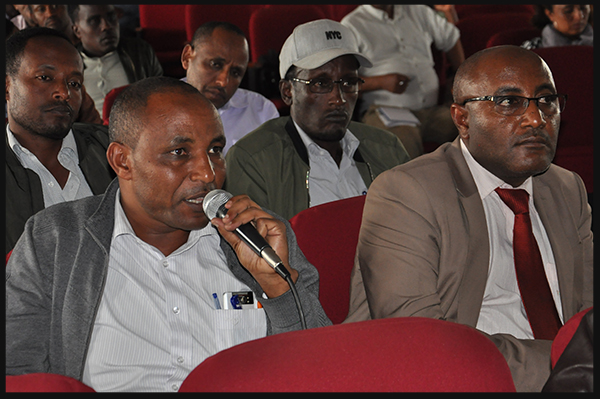Save the Children Calls for ‘O’ Class Scale Up in SNNP Region

Save the Children held high level discussions in SNNPR Saturday, March 24, 2018 on its ‘O’ Class School Readiness Program and ways of scaling it up in the region. In a one-day workshop organized in collaboration with the SNNP Regional Education Bureau, Save the Children underlined the need to ensure that children in rural settings have access to play-based preschool learning environment, a.k.a ‘O’ class, which lays the foundation for their future education and development.
Save the Children held high level discussions in SNNPR Saturday, March 24, 2018 on its ‘O’ Class School Readiness Program and ways of scaling it up in the region. In a one-day workshop organized in collaboration with the SNNP Regional Education Bureau, Save the Children underlined the need to ensure that children in rural settings have access to play-based preschool learning environment, a.k.a ‘O’ class, which lays the foundation for their future education and development.
Citing research findings, Adem Alo, Every Last Child Campaign Manager with Save the Children stated that investing in Early Childhood Care and Education is key to success in their regular school performance and overall cognitive and behavioral development. Adding, Adem said Save the Children is committed to working with the SNNP Regional Government, The Regional Education Bureau and its line offices, the private sector and other stakeholders to scale up its ‘O’ Class interventions throughout the region. He further called for using the policy level opportunities that the government has put forward in the form of Early Child Care and Education Policy Framework, the Operational Strategic Plan and the minimum standard for ‘O’ Class attainment.
Tessema Dima, Deputy Head of the Regional Education Bureau on his part said preschool readiness initiatives greatly contribute to enabling children to become effective learners in regular schools and it is an integral part of ensuring quality education for citizens. The ‘O’ class coverage was as low as 3.6 in 2011, and seven years on, Tessema said the coverage has reached 56.8% in the region. While this is an encouraging progress, “we must act together to address challenges related to accessibility, low quality, and shortage of trained facilitators and equipment for ‘O’ classes,” he noted.
Dagnachew Melese, Program Manager for Save the Children’s ECCD, ELM and School Readiness Program, highlighted best practices in the program implementation including the incorporation of Early Literacy and Math (ELM) model for which ToT training was provided for education experts as well as trainings for teachers, parent facilitators, parent and teacher association members and so on. Dagnachew said turnover of ‘O’ class facilitators, lack of child-appropriate school materials and facilities and insufficient focus on building foundational ELM skills are among the challenges the program is facing.
In her extensive presentation, Zinaye Misrak, Regional ECCE Expert with the SNNPR Education Bureau, underlined the strategic needs for advocacy on the importance of ECCE at grass root level and the need for coherent government structure to scale up ‘O’ class implementation in the region with increased access, equity and quality of services and optimal child protection practices. Representatives from zonal and Woreda administration and the regional Education Bureau and its line offices expressed their commitment to address the challenges and ensure access to ECCE services for many more children in the region.
Save the Children is implementing its ‘O’ Class School Readiness Program in SNNPR since 2016 reaching 73 schools in seven zones of the region, including the recently incorporated Siltie and Gurage zones.
 Ethiopia
Ethiopia